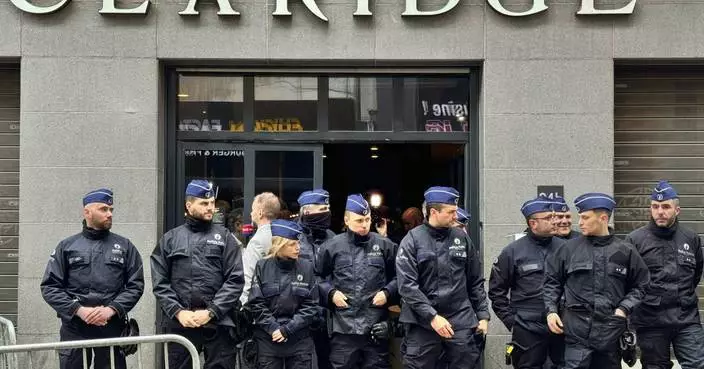Experts from scores of countries are meeting to discuss ways to define and deal with "killer robots" — futuristic weapons systems that could conduct war without human intervention.
The weeklong gathering that opened Monday is the second at U.N. offices in Geneva this year to focus on such lethal autonomous weapons systems and to explore possibilities for regulating them, among other issues.
In theory, fully autonomous, computer-controlled weapons don't exist yet, U.N. officials say. The debate is still in its infancy, and the experts have at times grappled with basic definitions. The United States has argued that it's premature to establish a definition of such systems, much less regulate them.
Some top advocacy groups say governments and militaries should be prevented from developing such systems, which have sparked fears and led some critics to envisage harrowing scenarios about their use.
As the meeting got underway, Amnesty International urged countries to work toward a ban.
Killer robots are "no longer the stuff of science fiction," Rasha Abdul Rahim, an artificial intelligence researcher for the human rights organization, said. Rahim warned that technological advances are outpacing international law.
Part of the trouble for activists, however, is that the U.N.-backed conference that convened the meeting works by consensus. A single participating country — like a big military power — therefore could scuttle efforts to reach an international ban.
Amandeep Gill, who is chairing the meeting and a former Indian ambassador to the U.N.-backed Conference on Disarmament, said progress is being made. He summarized three general camps of countries: One seeks a formal, legal ban on such weapons; another wants a political, but non-binding agreement; and a third wants no changes at all.
"We are coming closer to an agreement on what should be the guiding principles — guiding the behavior of states and guiding the development and deployment of such systems around the world," Gill told reporters Monday. "And this is not an insignificant outcome."
At a news conference hosted by the Campaign to Stop Killer Robots, Nobel Peace Prize laureate Jody Williams said the group wanted "meaningful human control" when it comes to the use of military weapons and negotiations toward a ban on computer-controlled weapons systems.
"There is a lot of movement within the governments: We're up to 26 now that have called for a ban," said Williams, who won the 1997 Nobel for her work against land mines. "Logic would dictate — at least in my thinking — that there would be a mandate toward negotiating a binding instrument, and that's what we're pushing for here this week."
WARSAW, Poland (AP) — Polish Prime Minister Donald Tusk expressed satisfaction on Monday after a series of candidates supported by his party won weekend races for mayor.
Candidates from his pro-European Union centrist Civic Coalition, or running with the party's backing, won in a series of cities in the second round of local elections held on Sunday, among them Krakow, Poznan, Wroclaw and Rzeszow.
“It is very difficult to clearly say who won and who lost,” Tusk said Monday. “But if we compare these results, especially in the most attractive places, on these attractive battlefields ... then I actually have reasons for satisfaction.”
“Law and Justice has simply disappeared in many places,” Tusk added at a news conference, referring to the main opposition party.
The results put Civic Coalition in a favorable position as the country looks next to elections to the European Parliament on June 9.
Mayors were chosen in a total of 748 cities and towns where no single candidate won at least 50% of the vote during the first round on April 7.
Candidates for Tusk’s party also recaptured cities where they had not held power for many years, including Zielona Gora, Legnica and Torun.
The local and regional elections were viewed as a test for Tusk's pro-European Union government four months after it took power at the national level. Sunday's second round strengthened the Tusk government's leverage in the cities, which should facilitate cooperation on development projects and allotment of EU funds.
Tusk's allies also won in some places in the first round two weeks ago, including in Warsaw, where incumbent Mayor Rafal Trzaskowski was an easy victor.
In the first round, the right-wing Law and Justice, prevailed on the level of regional assemblies in the country's 16 provinces, where it took 34.3% of the votes, while Tusk's Civic Coalition got 30.6%. Law and Justice governed on the national level from 2015-23.
Tusk’s socially liberal Civic Coalition traditionally has strong support in cities, while Law and Justice has a more solid base in conservative rural areas, particularly in eastern Poland.
Civic Coalition is the largest group in a three-party coalition that governs the EU nation of 38 million people. The coalition is pro-European Union but otherwise spans a wide ideological spectrum with left-wing politicians in the Left party as well as conservatives in the Third Way.
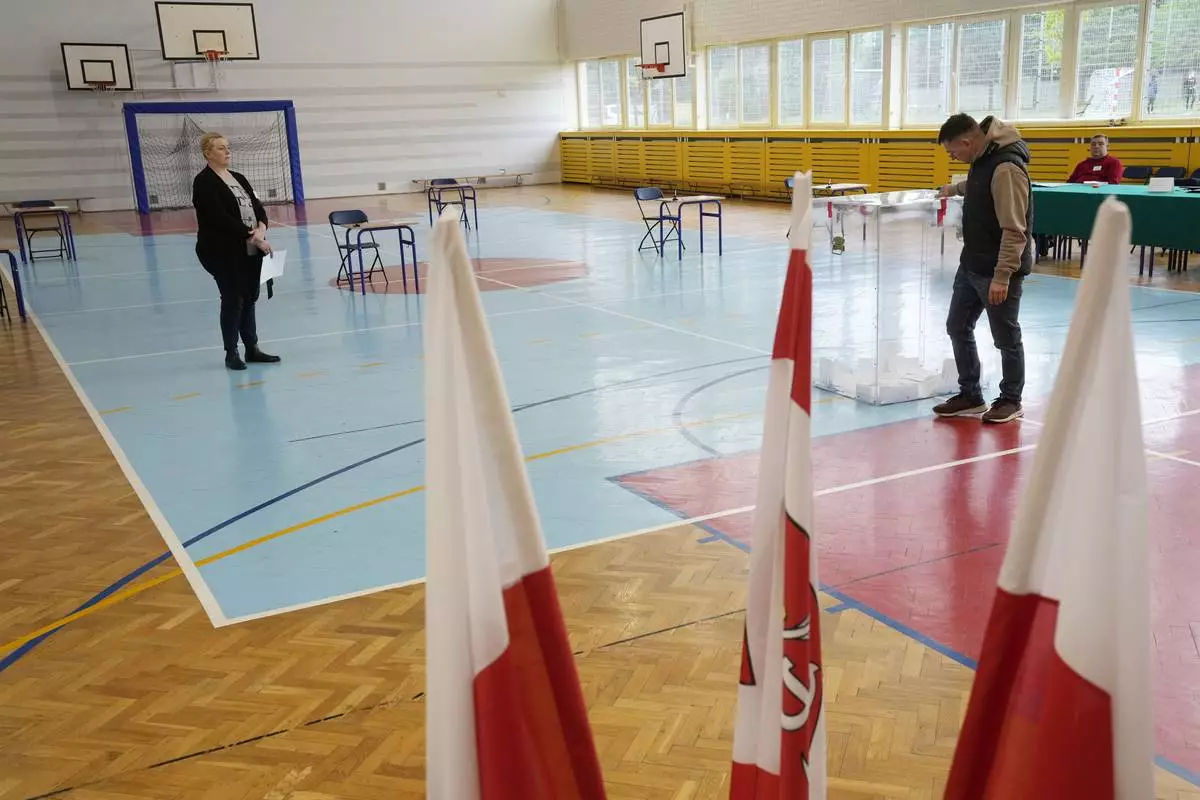
Polish voters take part in a local runoff election in Lomianki, near Warsaw, Poland on Sunday, April 21, 2024. Voters are choosing mayors who did not win outright in the first round of the election two weeks earlier. (AP Photo/Czarek Sokolowski)
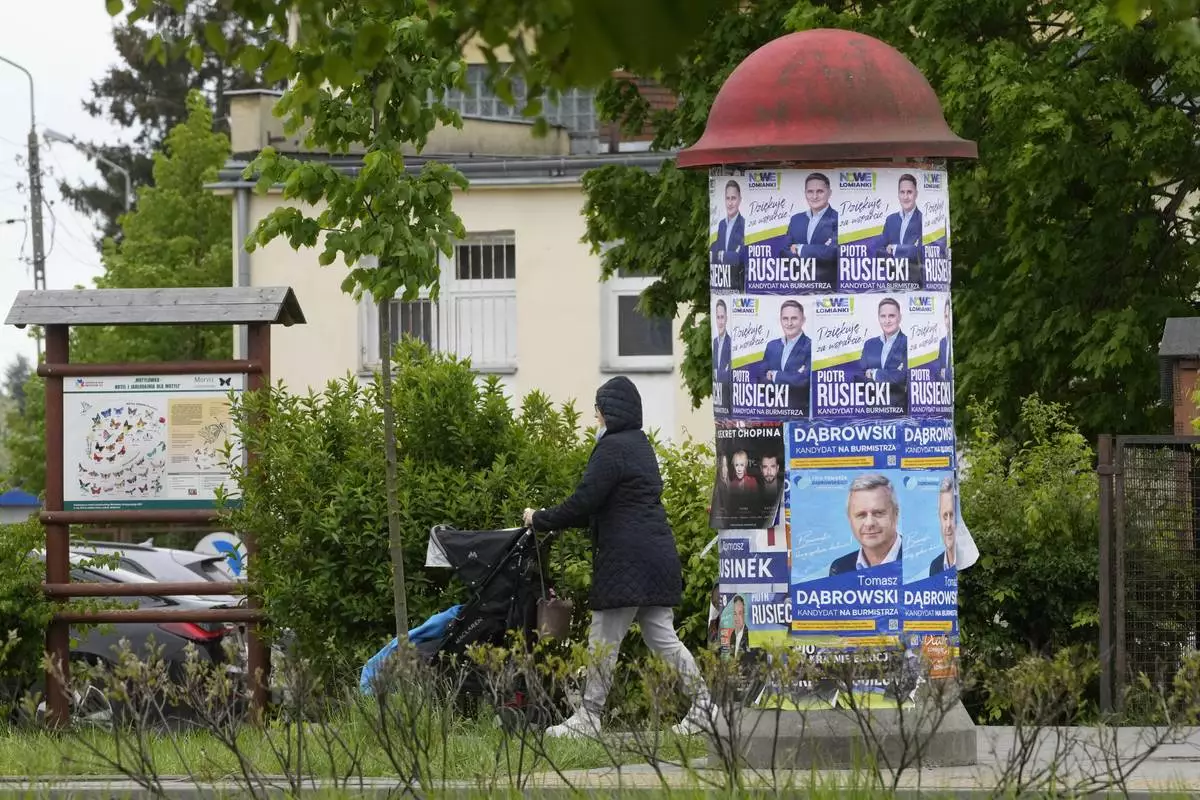
Campaign posters promote candidates as Poles vote in local and regional elections in Lomianki, near Warsaw, Poland on Sunday, April 21, 2024. Voters are choosing mayors who did not win outright in the first round of the election two weeks earlier. (AP Photo/Czarek Sokolowski)
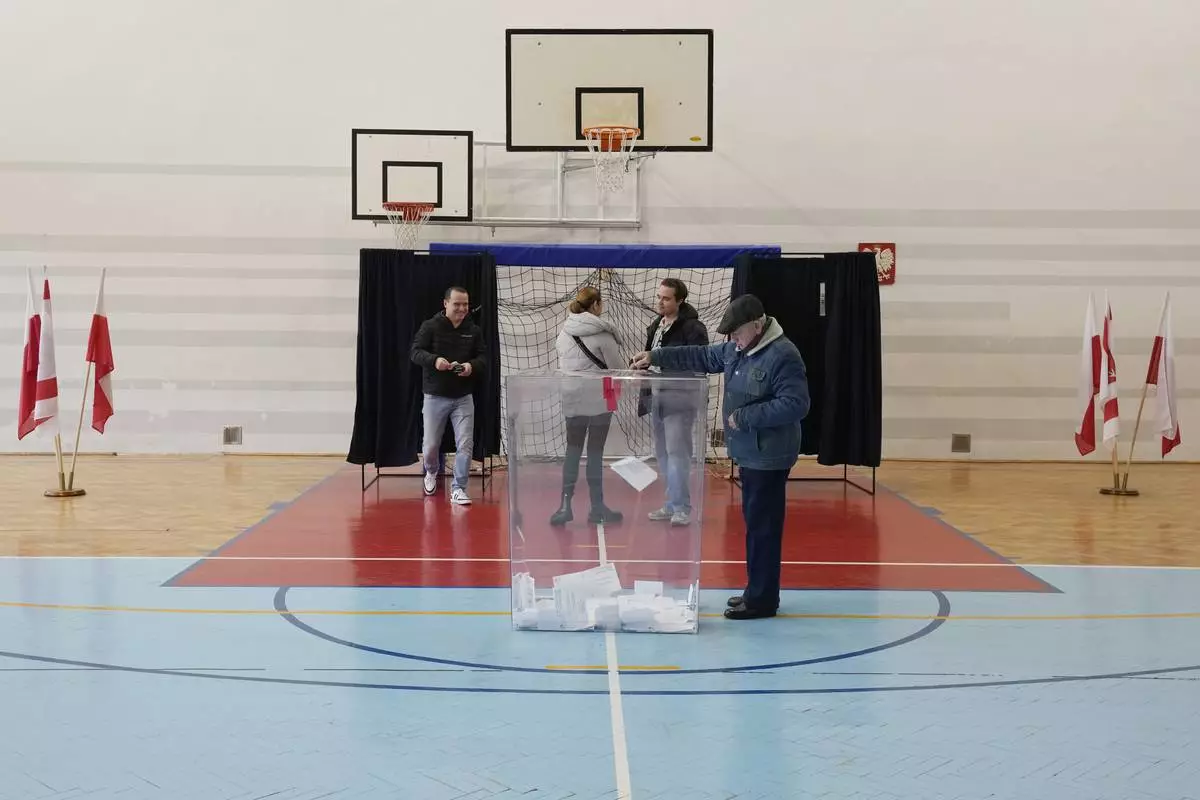
Polish voters take part in a local runoff election in Lomianki, near Warsaw, Poland on Sunday, April 21, 2024. Voters are choosing mayors who did not win outright in the first round of the election two weeks earlier. (AP Photo/Czarek Sokolowski)
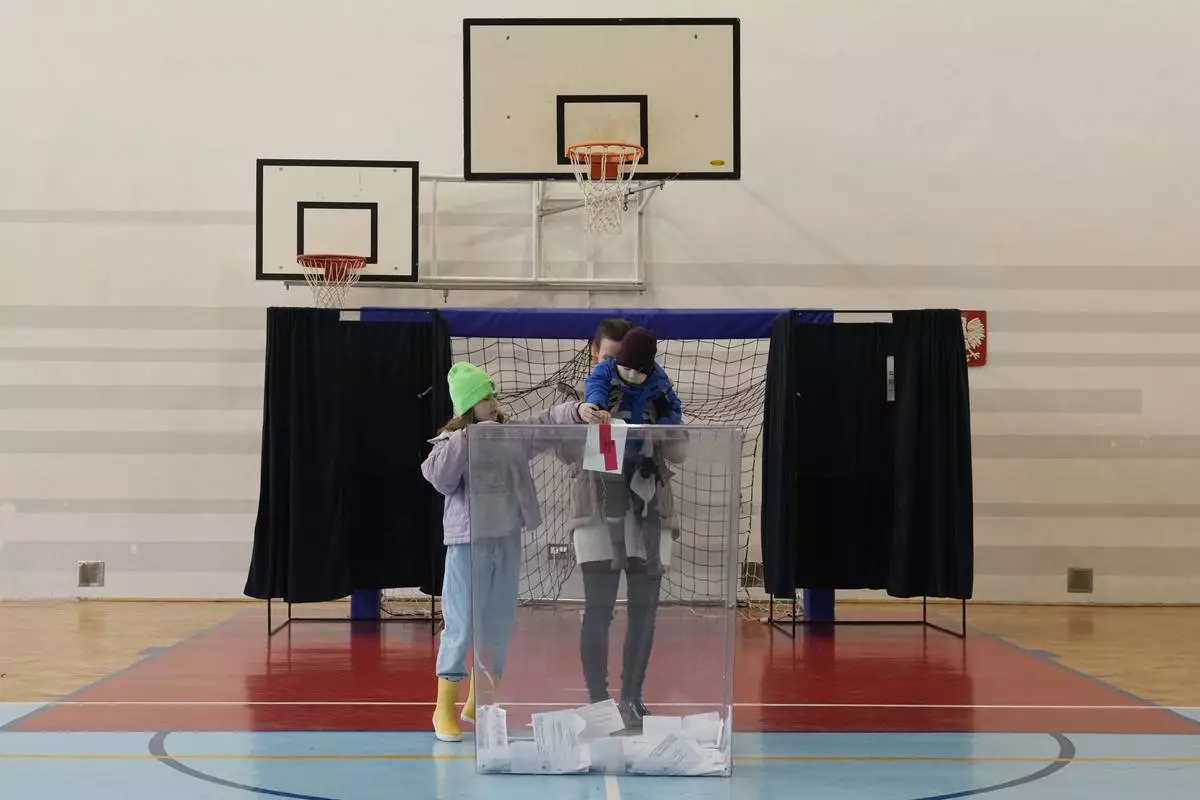
Polish voters take part in a local runoff election in Lomianki, near Warsaw, Poland on Sunday, April 21, 2024. Voters are choosing mayors who did not win outright in the first round of the election two weeks earlier. (AP Photo/Czarek Sokolowski)
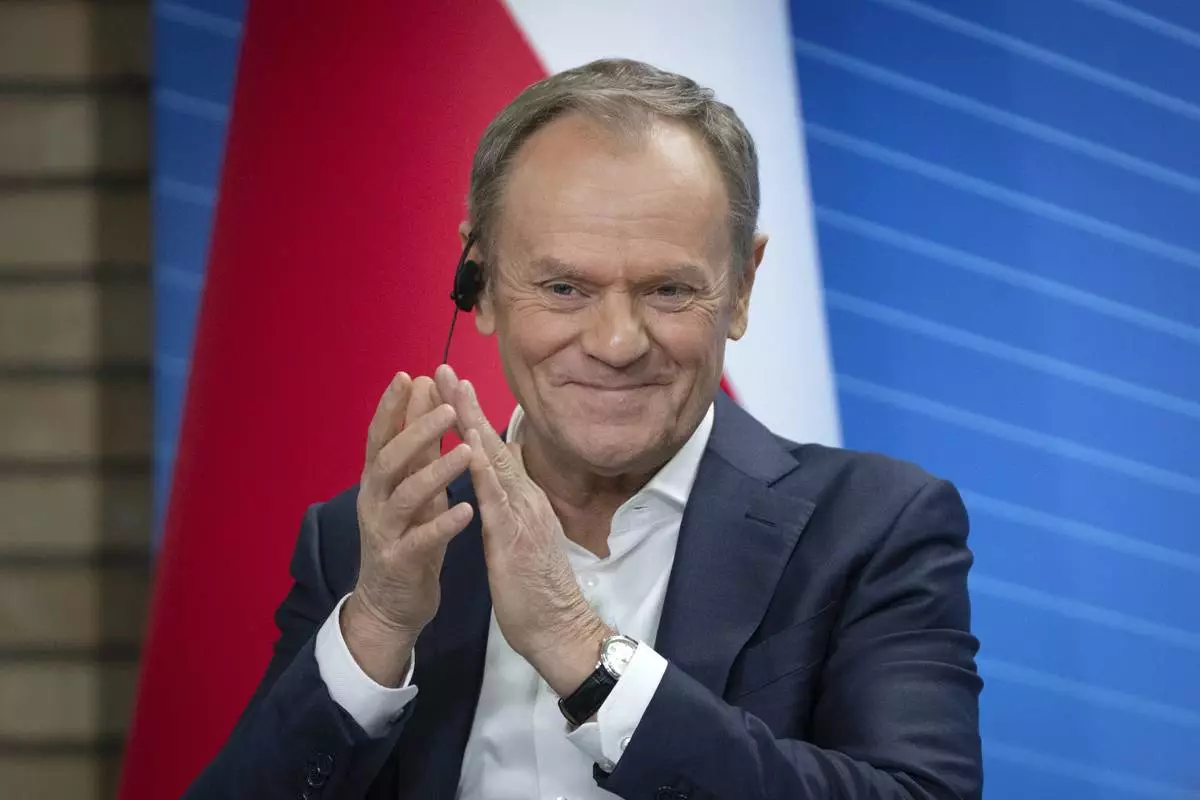
FILE - Poland's Prime Minister Donald Tusk reacts during his and Ukrainian President Volodymyr Zelenskyy meeting with students in Kyiv, Ukraine, Monday, Jan. 22, 2024. Poland's Prime Minister Donald Tusk is celebrating a victory on Monday April 22, 2024 after a series of candidates supported by his party won weekend races for mayor. (AP Photo/Efrem Lukatsky, File)
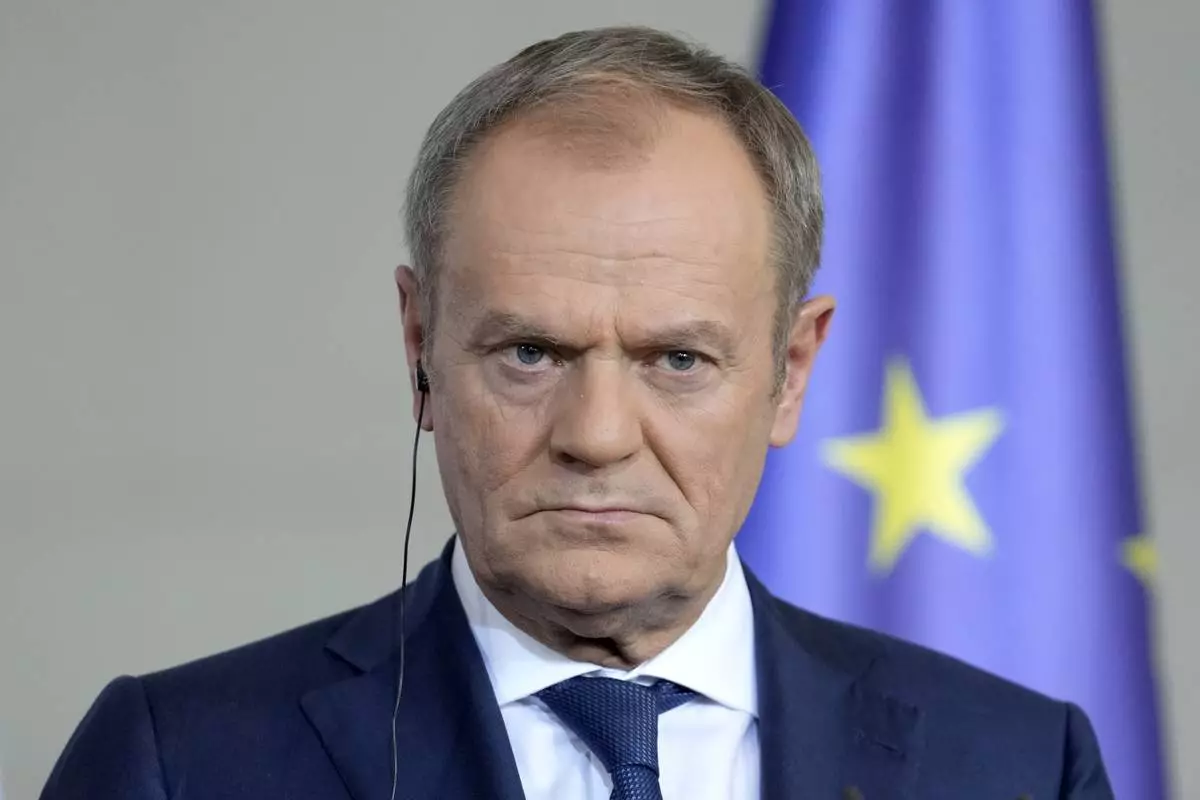
FILE - Poland's Prime Minister Donald Tusk listens to the media in Berlin, Germany, Friday, March 15, 2024. Tusk is celebrating a victory on Monday April 22, 2024 after a series of candidates supported by his party won weekend races for mayor. (AP Photo/Ebrahim Noroozi, File)















